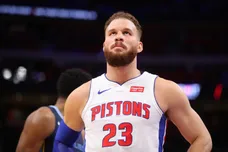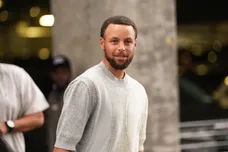Kendrick Lamar, whom we just highlighted yesterday with a Top 25 songs ~of all time~ list (read and debate it), has landed the cover of Rolling Stone's -- with the sub-header 'The Greatest Rapper Alive' accompanying him.
In the in-depth Q&A with the Compton-bred MC, they touch on Kendrick working with Bono (their collaboration "XXX" did make our list), Kendrick speaks on Donald Trump (or rather, why he's not speaking on Donald Trump), he defines a "wack artist," visiting Africa, and much more.
Check out some choice excerpts below, or head to Rolling Stone for the full interview.
On not speaking on Donald Trump:
I mean, it's like beating a dead horse. We already know what it is. Are we gonna keep talking about it or are we gonna take action? You just get to a point where you're tired of talking about it. It weighs you down and it drains your energy when you're speaking about something or someone that's completely ridiculous. So, on and off the album, I took it upon myself to take action in my own community. On the record, I made an action to not speak about what's going on in the world or the places they put us in. Speak on self; reflection of self first. That's where the initial change will start from.
On what makes a wack artist:
I love that question. How would I define a wack artist? A wack artist uses other people's music for their approval. We're talking about someone that is scared to make their own voice, chases somebody else's success and their thing, but runs away from their own thing. That's what keeps the game watered-down. Everybody's not going to be able to be a Kendrick Lamar. I'm not telling you to rap like me. Be you. Simple as that. I watch a lot of good artists go down like that because you're so focused on what numbers this guy has done, and it dampers your own creativity. Which ultimately dampers the listener, because at the end of the day, it's not for us. It's for the person driving to their 9-to-5 that don't feel like they wanna go to work that morning.
On Bono appearing on "XXX"
We had a [different] record we were supposed to be doing together. He sent it over, I laid some ideas to it, and we didn't know where it was going. I just happened to have an album coming out, so I just asked him, like, "Yo, would you do me this honor of letting me use this record, use this idea that I want to put together because I'm hearing a certain type of 808, a certain drum to it." And he was open to it.
On making "DAMN." more accessible than "TPAB"
The initial goal was to make a hybrid of my first two commercial albums. That was our total focus, how to do that sonically, lyrically, through melody – and it came out exactly how I heard it in my head. … It's all pieces of me. My musicality has been driving me since I was four years old. It's just pieces of me, man, and how I execute it is the ultimate challenge. Going from To Pimp a Butterfly to DAMN., that shit could have crashed and burned if it wasn't executed right. So I had to be real careful on my subject matter and how I weave in and out of the topics, where it still organically feels like me.
On Future:
He's his own genius. I've watched him in the studio. The way he comes up with the melodies is [snaps fingers] like that, you know. You have to speak a certain type of language and also have a great study in music – the same way I have – for what he's done. I'm sure he's grown up off a ton of R&B. Watching him come up with the melodies, that's a whole other ballgame, to understand them sonics.







